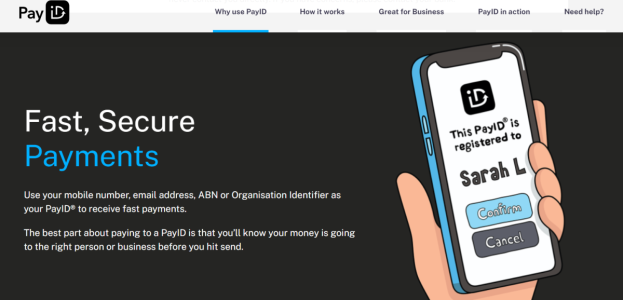Selling online? Here’s how to avoid losing money to ruthless scammers on Facebook Marketplace
Scammers are constantly on the prowl in the digital marketplace.
Facebook Marketplace, a go-to platform for millions of Australians wishing to buy or sell items, is increasingly targeted by fraudsters, leading to substantial financial losses to individuals.
This has raised distress among users, prompting demands for Facebook to do more in safeguarding its platform against such scams.
Facebook Marketplace was originally intended to foster a digital space where people can conveniently offload household goods or hunt for prized bargains.
However, it has been infiltrated by nefarious criminals. Their tricks of the trade range from incomplete, newly created profiles to exploiting trusted platforms like PayID, leaving a trail of frustrated users in their wake.
Emilia Rossi, a seasoned vendor on Facebook Marketplace alongside other platforms such as eBay and Gumtree, observed an alarming escalation of scam attempts, particularly those utilising the PayID system.
She recounted that anonymous users offer immediate payment via PayID without the requisite enquiries or inspection, setting off alarm bells for potential scams.
‘With a wider selection of items available, it seems scammers might also see an opportunity,’ Rossi shared.
‘Economic downturns could further fuel this concern, potentially driving more people to buy and sell online, creating a larger target audience for these scams,’ she added.
The ingenious traps make even discerning people fall prey to these scams, with a so-called relative often promising to collect the item on behalf of the scammer.
The scam was revealed when the relative never shows, and the seller has unsuspectingly parted with their hard-earned cash.
‘I just wanted to get rid of my couch,’ a frustrated seller shared.
‘They seem legit, and then you go back and forth, then the “relative” and the PayID bit comes, and it’s like, “Oh God, another one,”’ they added.
‘In the end, I’d had enough so I just dumped the couch out the front of my house and booked a council pick-up.’
Despite PayID being a legitimate form of electronic payment, scammers are able to manipulate it to conduct fraud.
How is this possible? The scammer convinces the seller that they need a suitable PayID account to process the payment.
They would claim that they paid an extra amount to release the funds in PayID and would ask for a reimbursement.
Unfortunately, any money transferred by the unsuspecting seller will directly line the pockets of the scammer, leaving the seller out of pocket and without a buyer.
These scams are most effective at appearing legitimate. Scammers may even provide fabricated confirmations or text messages from PayID or a bank, aiming to convince victims of its authenticity.
Dr Cassandra Cross, Associate Dean at Queensland University of Technology, recommended being wary of buyers who do not seek to negotiate the price or view the item.
According to her, such red flags are critical in not falling prey to these scams.
Many people have reported scam accounts, and it seems there has been only limited action by Facebook. Therefore, it falls upon individual users to protect their transactions.
Cross-referencing potential buyers with their Facebook profiles, considering the age of the profile and its details, can all provide pivotal clues to their legitimacy.
Understanding the modus operandi of scams, such as the PayID scam, will also go a long way in curtailing potential losses.
You can read more about similar scams in our Scam Watch forum:
Research indicated that about one in ten marketplace users have been tricked, leading to losses of approximately $500 on average over the past 12 months.
ScamWatch, which is a part of the Australian Competition and Consumer Commission (ACCC), reported 1,944 online marketplace scams that used PayID, resulting in a total loss of $778,315.
That's a significant increase compared to the amount lost in 2022, which was $260,000.
Meanwhile, Facebook's parent company, Meta, assured it is committed to fighting against scams.
A company spokesperson stated: ‘Meta adopts a multifaceted approach to tackle scams. We use both technologies, such as new machine learning techniques, and specially trained reviewers to identify and action content and accounts that violate our policies.’
‘We also invest in tools on our services that allow people to report scams and to warn people if they are contacted by someone they don’t know,’ they added.
‘We partner with local organisations to educate consumers to spot and avoid scams and bring enforcement action against scammers.’

Have you or someone you know been a victim of a marketplace scam? Share your tips in the comments below to help others avoid similar situations.
Facebook Marketplace, a go-to platform for millions of Australians wishing to buy or sell items, is increasingly targeted by fraudsters, leading to substantial financial losses to individuals.
This has raised distress among users, prompting demands for Facebook to do more in safeguarding its platform against such scams.
Facebook Marketplace was originally intended to foster a digital space where people can conveniently offload household goods or hunt for prized bargains.
However, it has been infiltrated by nefarious criminals. Their tricks of the trade range from incomplete, newly created profiles to exploiting trusted platforms like PayID, leaving a trail of frustrated users in their wake.
Emilia Rossi, a seasoned vendor on Facebook Marketplace alongside other platforms such as eBay and Gumtree, observed an alarming escalation of scam attempts, particularly those utilising the PayID system.
She recounted that anonymous users offer immediate payment via PayID without the requisite enquiries or inspection, setting off alarm bells for potential scams.
‘With a wider selection of items available, it seems scammers might also see an opportunity,’ Rossi shared.
‘Economic downturns could further fuel this concern, potentially driving more people to buy and sell online, creating a larger target audience for these scams,’ she added.
The ingenious traps make even discerning people fall prey to these scams, with a so-called relative often promising to collect the item on behalf of the scammer.
The scam was revealed when the relative never shows, and the seller has unsuspectingly parted with their hard-earned cash.
‘I just wanted to get rid of my couch,’ a frustrated seller shared.
‘They seem legit, and then you go back and forth, then the “relative” and the PayID bit comes, and it’s like, “Oh God, another one,”’ they added.
‘In the end, I’d had enough so I just dumped the couch out the front of my house and booked a council pick-up.’
Despite PayID being a legitimate form of electronic payment, scammers are able to manipulate it to conduct fraud.
How is this possible? The scammer convinces the seller that they need a suitable PayID account to process the payment.
They would claim that they paid an extra amount to release the funds in PayID and would ask for a reimbursement.
Unfortunately, any money transferred by the unsuspecting seller will directly line the pockets of the scammer, leaving the seller out of pocket and without a buyer.
These scams are most effective at appearing legitimate. Scammers may even provide fabricated confirmations or text messages from PayID or a bank, aiming to convince victims of its authenticity.
Dr Cassandra Cross, Associate Dean at Queensland University of Technology, recommended being wary of buyers who do not seek to negotiate the price or view the item.
According to her, such red flags are critical in not falling prey to these scams.
Many people have reported scam accounts, and it seems there has been only limited action by Facebook. Therefore, it falls upon individual users to protect their transactions.
Cross-referencing potential buyers with their Facebook profiles, considering the age of the profile and its details, can all provide pivotal clues to their legitimacy.
Understanding the modus operandi of scams, such as the PayID scam, will also go a long way in curtailing potential losses.
You can read more about similar scams in our Scam Watch forum:
- Experts reveal scammers are outsmarting people on online marketplaces
- Man loses $2000 item to masked robber in shocking Facebook Marketplace scheme
- Woman orders TV on Facebook Marketplace but receives odd items instead
- This Aussie's experience with an online trailer sale will make you think twice before you click 'buy'
- Buying and selling online? Protect your PayID and avoid falling for this scam!
Research indicated that about one in ten marketplace users have been tricked, leading to losses of approximately $500 on average over the past 12 months.
ScamWatch, which is a part of the Australian Competition and Consumer Commission (ACCC), reported 1,944 online marketplace scams that used PayID, resulting in a total loss of $778,315.
That's a significant increase compared to the amount lost in 2022, which was $260,000.
Meanwhile, Facebook's parent company, Meta, assured it is committed to fighting against scams.
A company spokesperson stated: ‘Meta adopts a multifaceted approach to tackle scams. We use both technologies, such as new machine learning techniques, and specially trained reviewers to identify and action content and accounts that violate our policies.’
‘We also invest in tools on our services that allow people to report scams and to warn people if they are contacted by someone they don’t know,’ they added.
‘We partner with local organisations to educate consumers to spot and avoid scams and bring enforcement action against scammers.’
Key Takeaways
- Facebook Marketplace is experiencing a significant increase in scammers duping Australians, with losses amounting to $778,315.
- Users are being warned about PayID scams involving a supposed relative and a convincing script to commit fraud.
- Research revealed that one in ten marketplace users has been scammed, resulting in considerable collective financial loss.
- Meta has assured its users that it is committed to fighting scams, using a multifaceted approach to tackle them.
Have you or someone you know been a victim of a marketplace scam? Share your tips in the comments below to help others avoid similar situations.









